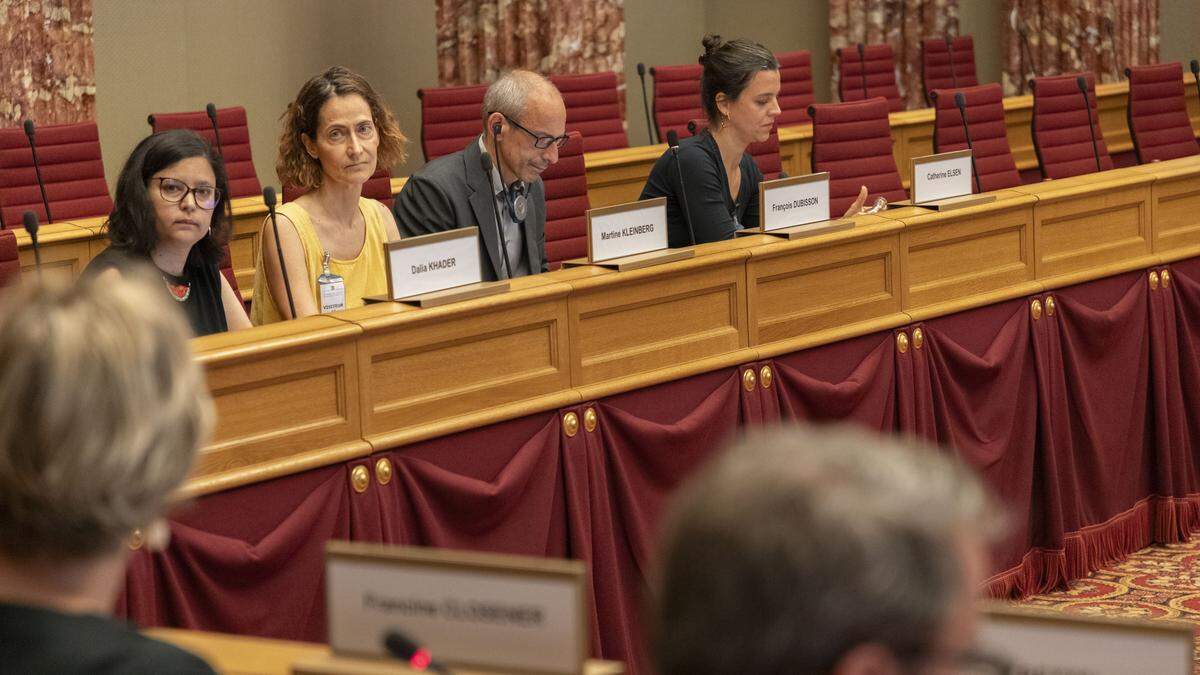Luxembourg has “no legal basis” to unilaterally impose sanctions on Israel, Foreign Minister Xavier Bettel said on Wednesday, telling parliament that the government must act in line with the rest of the EU.
“Luxembourg has no legal basis at the national level to impose sanctions against Israel,” Bettel said during a debate in parliament on a public petition calling for the country to be sanctioned “for its policies in Palestine”.
The petition received the necessary support of 4,500 people to be debated in parliament, before a rule change raised the threshold to 5,500 earlier this year.
Petitioner Dalia Khader said she did not want to see Luxembourg as an “accomplice” in the Israeli-Palestinian conflict because no measures are being taken against Israel.
Among other things, she is demanding that Luxembourg close its trade office in Tel Aviv and impose major commercial sanctions against Israel. Punitive measures should also be taken against individuals such as Prime Minister Benjamin Netanyahu, Khader said. “This is not a symbolic gesture, but a legal and moral obligation,” Khader said during the debate.
Khader was accompanied to parliament by Martine Kleinberg, president of Jewish Call for Peace, human rights lawyer François Dubuisson, and actress Catherin Elsen. “If nothing is done to exert pressure, the destruction of Gaza will continue,” Dubuisson said. “Our government prefers to watch instead of taking action,” added Elsen.
Several MPs, including David Wagner (Déi Lénk), Sam Tanson (Déi Greng), Fred Keup (ADR) and Laurent Mosar (CSV), asked what impact sanctions from a small country like Luxembourg should have.
Dubuisson explained that the Grand Duchy may be small in size, but not financially. “Israel is financially and economically dependent on the EU. Sanctions would therefore have an effect because they don’t want the flow of money to be stopped,” Dubuisson said.
According to Khader, Luxembourg’s reputation is being damaged by the lack of sanctions and other measures.
LSAP MP Franz Fayot also said there existed a double standard which was a threat to the Grand Duchy’s image: on the one hand, the Luxembourg government criticises Israel for its policy toward Palestine, but on the other, no measures are being taken to improve the situation.
Bettel argued that what Luxembourg does unilaterally has “very little impact”.
“What the EU does achieves nothing. What the International Court of Justice decides achieves nothing. What the UN decides in the General Assembly achieves nothing. So don’t take offence, but what we decide has very little impact,” he told parliament.
The Grand Duchy has no legal basis to impose sanctions against countries or individuals, Bettel said, adding that these can only be adopted by the EU, specifically by the Council of the EU, with the unanimity of all 27 EU member states. “The reality is that we are currently divided in the EU,” he said.
Last month Bettel remained evasive about whether Luxembourg would support EU sanctions on Israel, following an internal European Commission report highly critical of the country’s conduct in its war in Gaza.
Following Wednesday’s debate, Luxembourg’s parliament has requested that its own research service prepare a report by the end of the year on what measures – not requiring a legal basis – can be taken at the national level against Israel.
(This article was originally published by the Luxemburger Wort. Machine translated, with editing and adaption by John Monaghan.)
